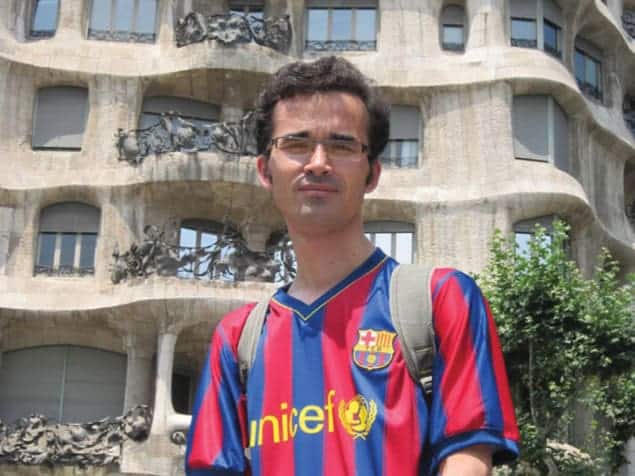
The Iranian physicist Omid Kokabee has been released from prison following treatment for kidney cancer. On 20 April the 34 year old had a kidney removed at Sina Hospital in Tehran – news that sparked outrage among human-rights groups, which claim that his worsening condition is due to lack of medical treatment. Kokabee has been granted parole on medical grounds after a bond of 5 billion Iranian rials (US$165,000) was posted by his friends. The parole will be reviewed every two weeks and is expected to last several months.
Kokabee was arrested in 2011 during a trip to Iran while he was a PhD student in laser physics at the University of Texas at Austin and at the Institute of Photonic Sciences in Barcelona. He was sentenced to 10 years in prison for “collaboration with a hostile government” and “illegal enrichment”. On 24 April this year Iran’s justice spokesperson responded to a question about the case, insisting that Kokabee made “big trouble” with his nuclear knowledge.
Military recruitment
Kokabee claimed in an open letter written after his conviction that the real reason for his jailing was repeatedly declining offers to join a nuclear military programme involving laser enrichment. During his five years in jail, Kokabee has received support from physics Nobel laureates as well as human-rights awards from the American Physical Society in 2013 and the American Association for Advancement in Science in 2014.
As early as December 2012 Scholars at Risk (SAR) – a US-based international network of institutions that defend academic freedom and human rights – wrote to Ayatollah Ali Khamenei, Iran’s supreme leader, noting that Kokabee’s health was deteriorating, with him suffering from kidney stones and stomach pain. However, it was not until November 2015 that Kokabee was transferred to hospital for treatment. After a period back in jail, he was then sent to hospital again where he was diagnosed with cancer on his right kidney, which has now been removed.
“If the authorities had responded with more appropriate measures, Kokabee’s current condition might have been prevented,” says Clare Robinson, director of protection services at SAR.








 User Center
User Center My Training Class
My Training Class Feedback
Feedback












Comments
Something to say?
Log in or Sign up for free